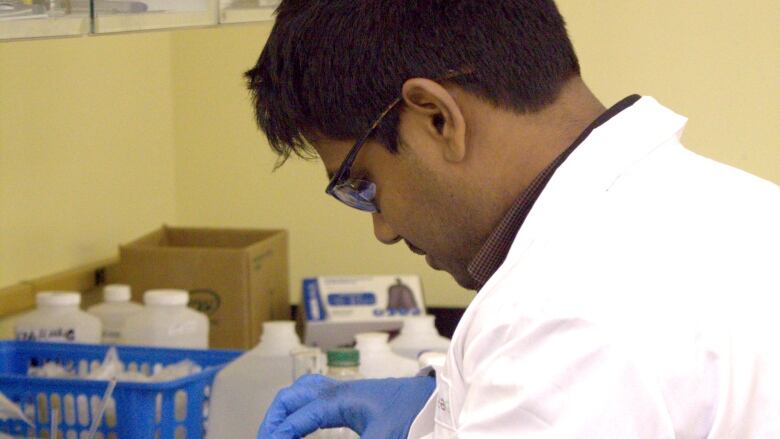Calgary startup makes concrete stronger by injecting it with CO2
Carbon Upcycling Technologies awarded Shell Canada grant to further develop green tech

A Calgary startup has figured out a way tocapture carbon dioxide gas insideconcrete, asphalt and plastic.
By doing so, Carbon Upcycling Technologies says it's also makingthose materials stronger.
"The concrete, for example we're seeing in our results up to 20 per cent increase in strength," Luke Carson, the company's director of research and business development, told the Calgary Eyeopeneron Monday.
"So the application there is companies would be able to achieve better load-bearing requirements with the same material or meet those standards with less [material]."
Carson said the technology could also increase the lifetime of asphalt roads in Canadian cities that experience a lot of freezing and thawing throughout the winter.
CO2 'locked' in
The startup has been awarded $550,000 in grants from the Alberta government andShell Canada to further research and test the green technology.
However, Carson said the results are already very encouraging especially when it comes to keeping the CO2 gas locked inside solid materials.
To do that, thecompany invented a nanomaterial thatcaptures thegas and locks it away, like a safe. The nanomaterialis thenmixedinto concrete, asphaltand plastics during the manufacturing process.
- MORE ALBERTA NEWS |Explosive advances in DNA testing raise hope, ethical questions
- MORE ALBERTA NEWS |Bovine TB outbreak: 6 questions with CFIA's chief veterinary officer
"We've done tests where you basically just put the material in an oven and you bake it and you see what happens with the mass that gets released. And we've seen that up to 150 C the carbon stays locked inside."
CarbonUpcyclingTechnologies is looking to partner with companies that produce concrete, asphalt and plastics so that it can test its technology on their products.
With files from the Calgary Eyeopener












_(720p).jpg)


 OFFICIAL HD MUSIC VIDEO.jpg)
.jpg)



























































































